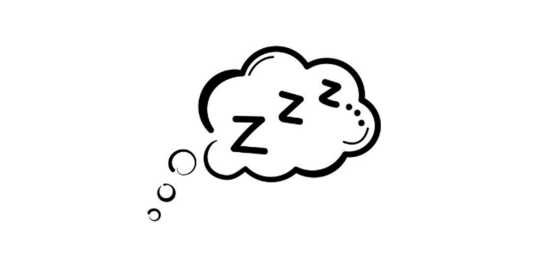Tips to Sleep Well This Summer: How to Beat the Heat & Stay Rested in June!
As the days become longer and the temperatures rise, sleep patterns can often change
and become harder to maintain. June's early sunrises, late sunsets, and growing
humidity can make it difficult to sleep well. However, restful nights are still possible with
a few simple modifications.
Why is Sleep Important?
Sleep is vital to our mental and physical well-being. We often spend our time
devoted to working, organizing, and completing tasks during the daytime. The question
is, are we prioritizing ourselves and truly getting an adequate amount of sleep? Or are
we just getting enough sleep to just barely make it through our busy days during the
week? These are great questions to ask as we all reflect at the end of the day.
Sleep supports cognitive processes, including memory and learning, cardiovascular
health, muscle regeneration, and the immune system. On the other hand, sleep
deprivation can harm mental health by making people more vulnerable to anxiety and
mood disorders and potentially impairing cognitive function.
Sleep is frequently neglected in the name of productivity, social engagements, or
screen time in today's fast-paced society. However, sleep is essential to general health
and is not a luxury. Our bodies need good sleep to perform at their best, both
intellectually and physically. Here's why one of the best things you can do for your
health is to prioritize maintaining proper sleep hygiene.
The Science Behind Sleep
Sleep is anything but passive. Your body and mind are both active during a good
night's sleep. Cells heal themselves, memories consolidate, hormones regulate, and
your immune system grows stronger. It is the nighttime routine that allows your body to
function adequately.
There are two forms of sleep: rapid eye movement (REM) and non-REM. Both
are vital, but REM sleep, which is associated with dreams, is particularly critical for
learning, mood management, and memory. Non-REM sleep includes deep sleep, the
most restorative stage that allows the body to recover and develop.
What Happens When You Don’t Get Enough Sleep?
Chronic sleep deprivation can lead to:
● Poor focus and memory.
● Weakened immunity
● Increased risk of chronic illnesses such as diabetes and heart disease.
● Mood swings, irritation
Even missing a few hours might damage your response time, decision-making abilities,
and emotional stability.
Why Prioritizing Sleep is Productive and Not Lazy
There's an idea that less sleep equals higher productivity. In reality, adequate
sleep enhances focus, creativity, problem-solving abilities, and emotional resilience. It is
very important to prioritize 7 to 9 hours of sleep per night.
Tips for Better Sleep
● Maintain a constant sleep routine, even on weekends.
● Limit coffee and screen time in the evening. Establish a relaxing bedtime
routine, such as reading, warm tea, or meditation.
● Keep the bedroom cool, dark, and quiet.
● Avoid large meals and drinking before bedtime.
Insomnia Awareness Night, organized by the American Academy of Sleep
Medicine and the Society of Behavioral Sleep Medicine takes place on Friday,
June 20, 2025. Due to the summer solstice, people may have some of the shortest
nights of the year, which can disrupt sleep for some. While June contains some of the
shortest evenings of the year, chronic insomnia can make every night feel like an
extended one.
Sleep is not something you squeeze in between obligations; it is the foundation
that allows you to be your best self. Whether you're a student or a parent, improving your
sleep is one of the most effective methods to improve your overall health.
So, tonight, turn off your notifications, lower the lights, and get some rest. Your body and mind will thank you!


